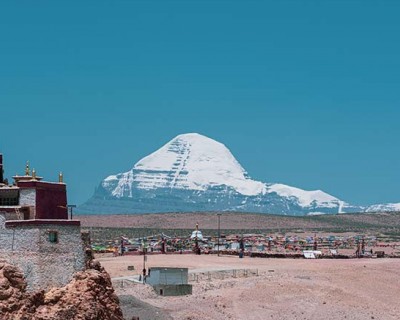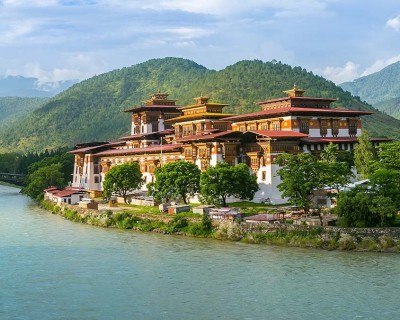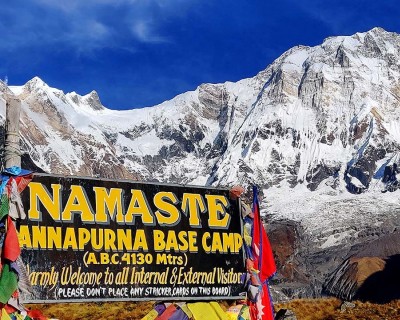Is Altitude a Major Problem During the Everest Base Camp Trek?
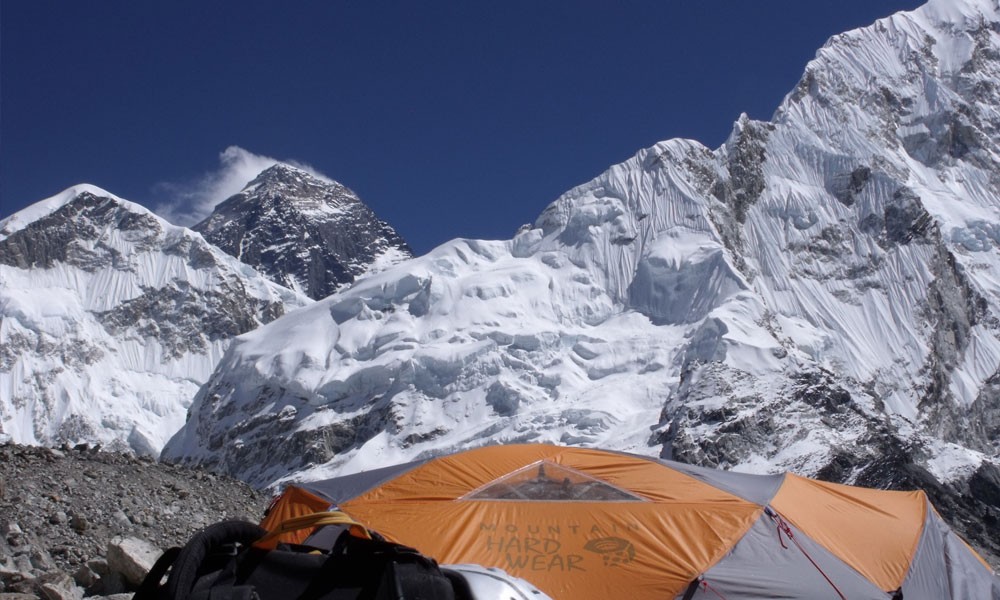
Expedition to the highest base camp in the world, Everest Base Camp, at 5,364 meters, bluntly put, isn’t an easy expedition. Yes, and the significant altitude jump points of the expedition can be challenging, and there is also the risk of Acute Mountain Sickness (AMS).
But, what you need to understand is that the number of acclimatization days in your trekking package is very vital when it comes to properly getting accustomed to the high-altitude environment. Generally, the Everest Base Camp Trek lasts around 12-14 days, and they have enough acclimatization days for you to overcome altitude complications.
Proper acclimatization and staying hydrated throughout the trek is the best way to beat altitude sickness.
Commencing your adventure from the gateway to Everest, Lukla, at 2,800 meters, the highest altitude gain point of this expedition is Kalapatthar (5545 meters) after Everest Base Camp (5,364 meters).
Can I Do the Everest Base Camp Trek Without Training?
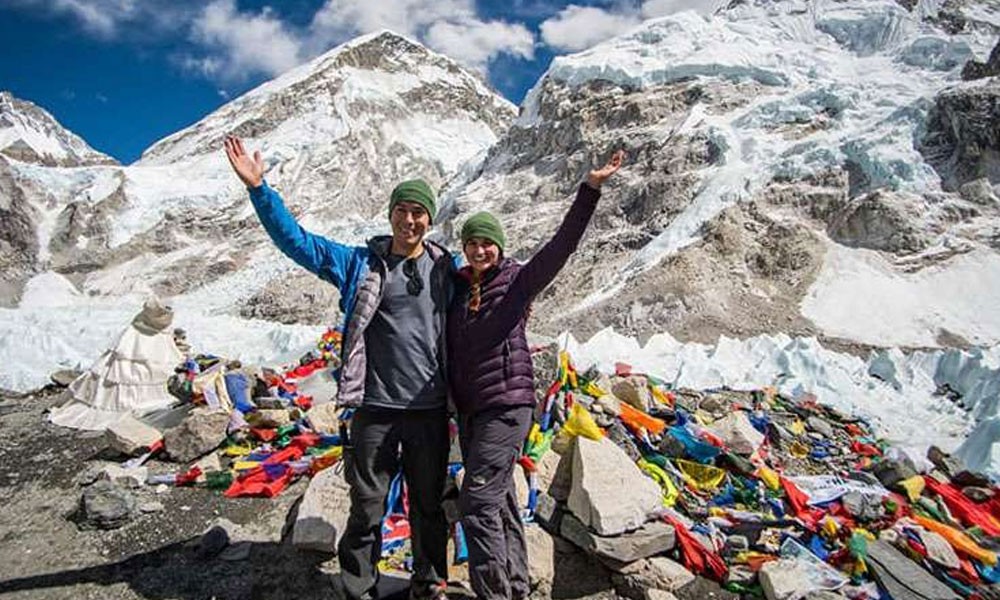 You might have heard that the physicality of a person is directly related to oxygen absorption. If someone is physically fit and exercises daily, evidently, this increases the strength and function of muscles, so that person’s body will require less amount of oxygen to move and will produce less carbon dioxide.
You might have heard that the physicality of a person is directly related to oxygen absorption. If someone is physically fit and exercises daily, evidently, this increases the strength and function of muscles, so that person’s body will require less amount of oxygen to move and will produce less carbon dioxide.
So, whenever thoughts like, can I do the Everest Base Camp Trek without training? Crosses your mind, ask yourself, are you that person?
If your muscles are fine-toned and you work out almost on a daily basis, you might be able to do well in a low oxygen saturation environment and might not need much of physical preparation for this lifetime adventure of the Khumbu region.
But, it might not be possible for the regular Joes who don’t put too much effort into physical exercise to complete the Everest Base Camp trek without training. Here are a few things you need to consider for your adventure to the Himalayas.
Physical Preparation
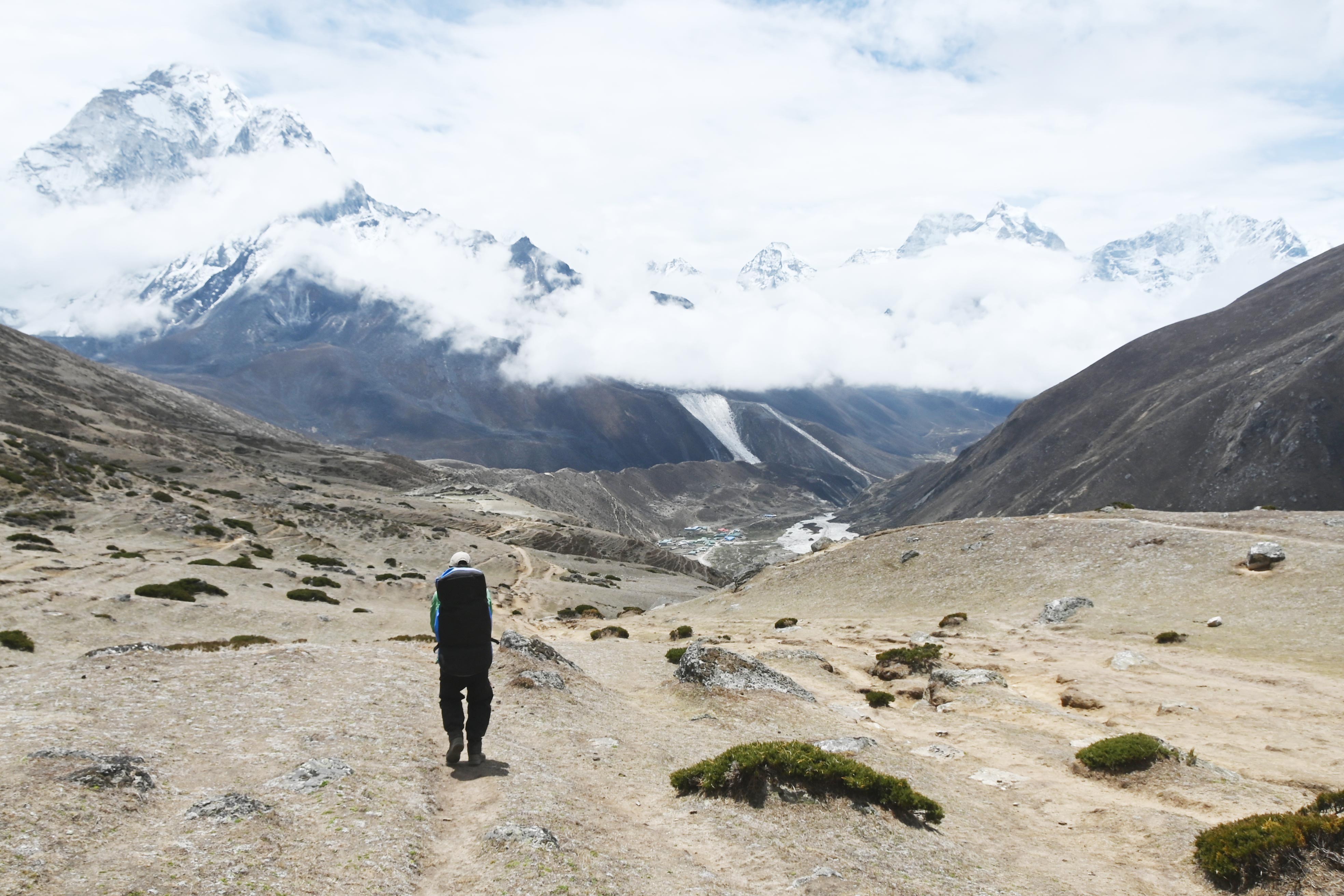 It is recommended that you start your physical preparation at least 8-12 weeks before the trekking if you haven’t completely worked out in a long time, adjust your training regime based on that.
It is recommended that you start your physical preparation at least 8-12 weeks before the trekking if you haven’t completely worked out in a long time, adjust your training regime based on that.
The major part of your training should be to emphasize strength and endurance build-up for the high-altitude adventure. You don’t need to work out 7 days a week; 4- 5 days of training in a week will be pretty much sufficient; just work out at around 3-4 hours every day, depending on how much your body gets used to the training regime.
Furthermore, hiking on natural trails helps a lot, it will be best if you carry a rucksack or backpack with at least 10kg during the practice hiking. Also, the uphill and downhill training, which you can even practice on stairs, will be nifty for the steep segment of Khumbu.
Mental Preparation
When we say mental preparation, it's not about yelling at yourself in front of the mirror every morning, telling yourself that you can do this; well, it's some part of it too. Of course, determination and striving for something can take you a long way; however, you should also prepare for what's ahead.
Traversing across the remote region of Khumbu means giving up on luxurious services and the comfort of your home. If you are expecting something extravagant on this high-Himalayas expedition, you are pretty much likely to get disappointed.
Most of the teahouses enroute to the Everest Base Camp are run by local Sherpa families, you share a twin bedroom in most cases. Similarly, the toilets may not be up to your standards; although the modern commode system is in practice in most teahouses, in some, you might have to get by with more basic(hole in the ground) variant.
And you will need to occasionally take short bathroom breaks on the mountainside or behind rocks and bushes.
P.S. You will have shower facilities in the lower region of the trek, but with the elevation to higher altitudes, you will have to manage with a bucket of warm water and wipes.
Everest Base Camp Trek Overview
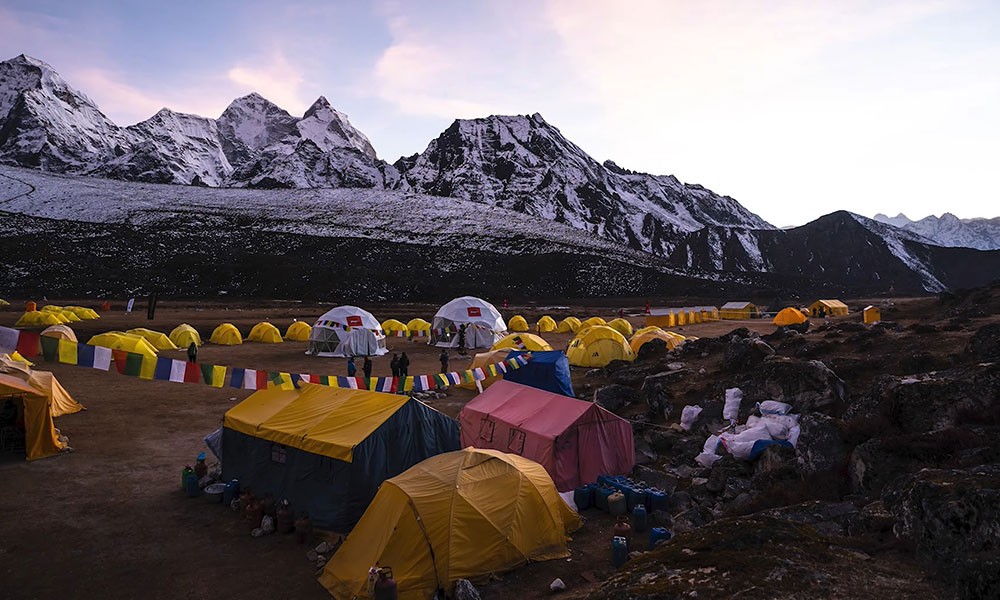 Everest Base Camp Trek, often dubbed as the ‘best trek in the world’ and ‘steps to heaven’, has its own set of arguments that keeps attracting trekking enthusiasts from all over the world. The diverse landscapes, from deep valleys with soaring rivers to lush green hills filled with rhododendrons, pine, and juniper trees, and the glacial region boasting clear wide vistas with the magnificent peaks of the Himalayas on its background, make this adventure an exhilarating experience.
Everest Base Camp Trek, often dubbed as the ‘best trek in the world’ and ‘steps to heaven’, has its own set of arguments that keeps attracting trekking enthusiasts from all over the world. The diverse landscapes, from deep valleys with soaring rivers to lush green hills filled with rhododendrons, pine, and juniper trees, and the glacial region boasting clear wide vistas with the magnificent peaks of the Himalayas on its background, make this adventure an exhilarating experience.
Plus, the beautiful traditional civilizations along the way, religious sites with great cultural significance, and popular pre-historic landmarks add magnificence to this exploration.
Starting your adventure from Lukla (2,800 meters), your adventure will move along the trail towards Namche Bazaar (3,440), which also will be your first acclimatization destination. Then, following the trail to Tengboche (3,874 meters), you will push for Dingboche (4,4000 meters), which will be your second acclimatization day.
After the final push to Lubuche (4,940 meters), you will hike to Gorakshep (5,180 meters) and climb up to Everest Base Camp (5,364 meters) in the last stretch, conquering the foothills of the tallest mountain in the world. On the following day, you will climb up to Kalapatthar (5,545 meters) and, concluding your expedition, trek down to Pheriche (4,200 meters).
Afterward, you will retrace your steps back to Namche Bazaar and Lukla, relishing in the same allurements of the Himalayan region but from a different prospect.
You will cover an approximate distance of 53 km (33 miles) from the starting point of Lukla to Everest Base Camp, and including the return trip of about the same distance, you will trek a total distance of 106 km (66 miles) in Everest Base Camp trek.
For those looking to add an extra layer of challenge and adventure to their Himalayan journey, the Everest Three High Passes Trek is an excellent option. This trek not only includes the classic Everest Base Camp route but also takes you through three of the highest passes in the Everest region, offering breathtaking views and an unparalleled experience of the region's diverse landscapes.
You may also like:




 You might have heard that the physicality of a person is directly related to oxygen absorption. If someone is physically fit and exercises daily, evidently, this increases the strength and function of muscles, so that person’s body will require less amount of oxygen to move and will produce less carbon dioxide.
You might have heard that the physicality of a person is directly related to oxygen absorption. If someone is physically fit and exercises daily, evidently, this increases the strength and function of muscles, so that person’s body will require less amount of oxygen to move and will produce less carbon dioxide. It is recommended that you start your
It is recommended that you start your  Everest Base Camp Trek, often dubbed as the ‘best trek in the world’ and ‘steps to heaven’, has its own set of arguments that keeps attracting trekking enthusiasts from all over the world. The diverse landscapes, from deep valleys with soaring rivers to lush green hills filled with rhododendrons, pine, and juniper trees, and the glacial region boasting clear wide vistas with the magnificent peaks of the Himalayas on its background, make this adventure an exhilarating experience.
Everest Base Camp Trek, often dubbed as the ‘best trek in the world’ and ‘steps to heaven’, has its own set of arguments that keeps attracting trekking enthusiasts from all over the world. The diverse landscapes, from deep valleys with soaring rivers to lush green hills filled with rhododendrons, pine, and juniper trees, and the glacial region boasting clear wide vistas with the magnificent peaks of the Himalayas on its background, make this adventure an exhilarating experience.